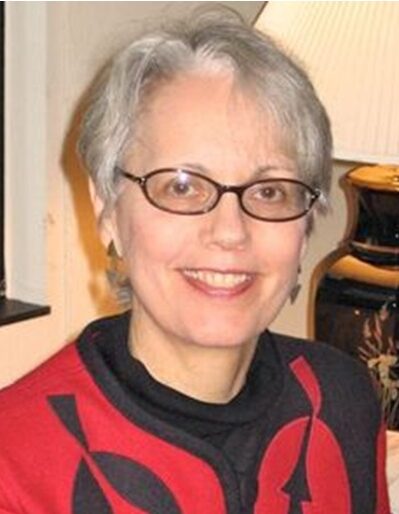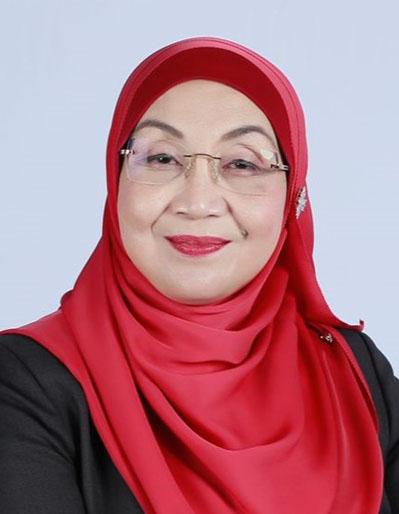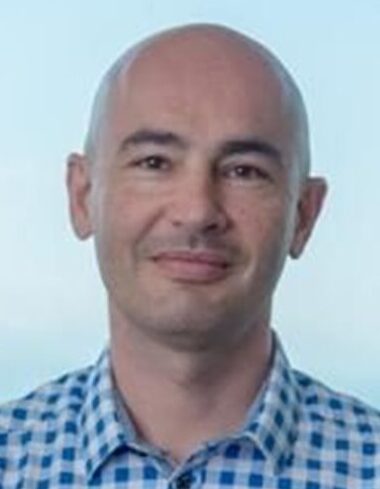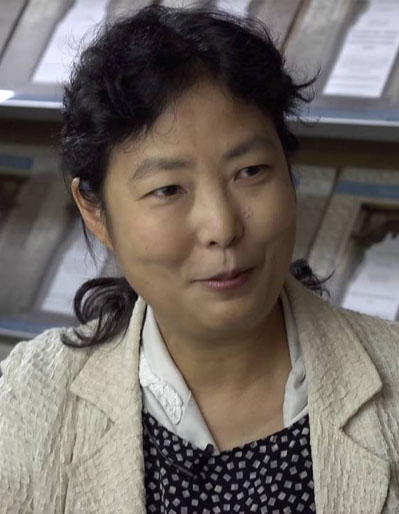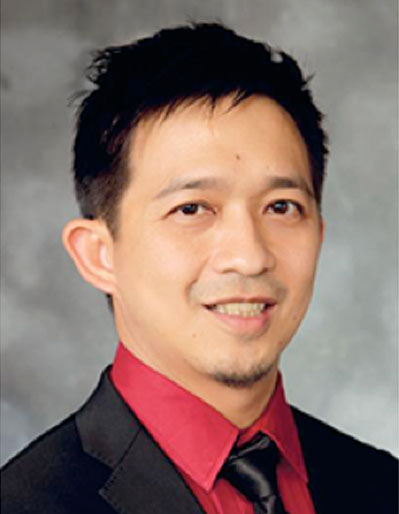Keynote Speakers
Prof. Dr. Catherine Lewis
Mills College, United States
Topic: Lesson and Learning Study: What’s Next?
Synopsis:
This talk will survey recent developments in Lesson Study and Learning Study and ask: What’s next? What promising recent work should we all know about? What gaps remain? Where should we go next?
Biodata:
Catherine Lewis, Ph.D. is a research scientist at Mills College (California ) who has directed 10 major grants funded by NSF, IES, or private foundations focused on mathematics instructional improvement. Her randomized trial of teacher-led lesson study with Japanese mathematical resources (Lewis & Perry, JRME, 2017, 48:3) was identified by a What Works Clearinghouse-criteria review as one of only two studies of mathematics professional learning (of 643 reviewed) to improve students’ mathematical proficiency. A developmental psychologist fluent in Japanese, she has worked to make Japanese elementary education practices and materials available to U.S. educators, with a particular focus on lesson study (teacher-led, classroom-based professional learning), and Mathematics Teaching Through Problem-solving (an approach in which students build each new mathematical idea in the curriculum). Lewis earned her B.A. at Harvard University and her Ph.D. at Stanford University, and is currently president of the World Association of Lesson Study. Lewis hails from a family with three generations of classroom teachers.
Prof. Dato’ Dr. Norazah Mohd Nordin
Universiti Kebangsaan Malaysia
Topic: Enhancing Technology Integration in Lesson Study : A Malaysian Perspective
Synopsis:
Technology is a powerful tool that transforms the traditional nature of teaching and learning in classrooms. Transforming classrooms into fully 21st century integrated technology requires transformation of perspectives particularly among teachers. In this talk, I will share with you my latest research on Google for Education project which I gleaned various insights as a practitioner and researcher. This study addresses how Malaysian teachers across subjects systematically cultivate their digital skills in communities of practice which results in effective learning among students. Teachers and students are trained to use Google Apps for Education and Chromebooks in this research project. Additionally, teachers are supported with coaching sessions by the expert team from The National University of Malaysia (UKM). I will then conclude this talk by exploring the benefits that both teachers and students get during their lessons in the classrooms by integrating specific technology and suggest future directions for technology integration in lesson study.
Biodata:
Dr. Norazah Nordin is a Professor of Learning Technologies and Innovation at Universiti Kebangsaan Malaysia ( The National University of Malaysia). She is currently serving as Deputy Vice-Chancellor of Industry, Alumni and Community Partnerships. Prior to this post, she was the Dean of the Faculty of Education for about six years. She is regarded as a versatile faculty leader having successfully transformed the faculty in achieving excellence in research, teaching and learning, innovation and community engagement. Her research areas include Massive Online Open Courses (MOOC), Mobile Learning, ICT in Lifelong Learning, and Instructional Design in Digital Learning and Futuristic Learning. The projects that she leads include the development of Higher Education Active Learning Spaces (HEALS), a collaborative research project with the Australian Innovative University Network. She also leads various projects on the development of MOOCs, Learning Design in the 4th Industrial Revolution and the 4IR Cross-Creative Learning Innovation for Autism. Her most current project is entitled “Google Solutions for Education in Malaysia: Enhancing Active Learning for 21st Century Students with Google Workspace and Chromebooks”, in which she is invited by Google Inc. to represent Malaysia to lead the Google for Education Research Project.
Prof. Dr. Stephane Clivaz
Lausanne University of Teacher Edu, Switzerland
Topic: Let’s talk about lesson study talk: What do we say? How do we learn?
Synopsis:
During lesson study sessions, participants are usually engaged in rich and meaningful conversations. Intrigued by the nature of these conversations, my Lausanne Laboratory Lesson Study research group has analysed Swiss teachers’ dialogue during lesson study. Building on these dialogues between Swiss teachers who are new to lesson study and working mainly on problem-solving in mathematics, I will highlight some essential characteristics of lesson study. In my presentation, we will explore if these characteristics are universal and how they are related to the construction of professional knowledge during lesson study.
Biodata:
Stéphane Clivaz is a Professor at Lausanne University of Teacher Education (HEP Vaud), Switzerland, teaching mathematics education. After obtaining his master’s degree in mathematics, he worked as a secondary mathematics teacher. Subsequently, he served as an academic advisor for the Ministry of Education. He is among the first educators in Switzerland to research on Lesson Study. Stéphane Clivaz co-founded the Lausanne Laboratory Lesson Study (3LS) in 2014 and assumed the role of the head of this laboratory until 2019. In 2021, he was invited as a visiting professor at Nagoya University, Japan. He is currently the Honorary General Secretary of WALS. His work has constantly supported the effort to bridge teacher training, lesson study action research and mathematics education research.
Dr. Ryoko Tsuneyoshi
Bunkyo University, Japan
Topic: The Lesson Study of Noncognitive Learning: Lesson Study in the Japanese Model of Holistic Education Tokkatsu
Synopsis:
Lesson study has taken root in many countries as a bottom-up, collaborative teacher learning model. There is no doubt that both the research and practice of lesson study has made enormous progress. At the same time, lesson study in the international context has tended to focus on subjects, on cognitive learning. However, in actuality, lesson study in Japan covers both cognitive/subject and noncognitive/non-subject areas; the official curriculum reflects this, and SEL areas are considered just as important as math and science. A representative set of periods in the latter is called the “tokubetsu katsudo” (tokkatsu for short), which includes activities as diverse as cleaning, group stayovers, club activities and classroom activities. Such collaborative student learning of noncognitive learning is part of the curriculum, and a theme of lesson study in Japan. The tokkatsu model (as holistic education Japanese style) is now supported nationally in Egypt, and more recently there have been pilot efforts in Malaysia with the assistance of JICA, and in some other countries independently. The concept of how to understand children, mitoru, etc. which has become internationally known with the spread of lesson study, is actually not limited to lesson study, but is part of a holistic learning framework supported by collaborative learning. If lesson study is the collaborative learning of teachers, tokkatsu is the collaborative learning of students. I will talk about how the two, and cognitive and noncognitive learning in tokkatsu and lesson study, reinforce each other to improve both teacher and student learning.
Biodata:
Ryoko Tsuneyoshi is the vice president and specially appointed professor at Bunkyo Gakuin University, Tokyo, Japan. Formerly Professor of Comparative Education (2000-2021) and Director of the Center for Excellence in School Education (2013-2015), she is presently the executive board member of the Intercultural Education Society of Japan, the Japan Educational Research Association, and the All-Japan Tokubetsukatsudo (tokkatsu) Association. She earned her Ph.D. at the Graduate School of Sociology, Princeton University. She conducts cross-national fieldwork, deals with multicultural issues, and has been assisting with the assisting teachers practice the tokkatsu model, the Japanese model of holistic education. Her books include: Tokkatsu: The Japanese Model of Holistic Education (Tsuneyoshi, R., Sugita, H., Kusanagi, K. & Takahashi, F. eds., World Scientific, 2021), Minorities and Education in Multicultural Japan (coedited with K. Okano and S. Boocock, Routledge, 2010), and The Japanese Model of Schooling: Comparisons with the United States (RoutledgeFalmer, 2001).
Dr. Yeap Ban Har
Marshall Cavendish Institute, Singapore
Topic: Lesson Study As Professional Development Opportunities
Synopsis:
In this lecture, we will discuss various elements of lesson study and how we can harness each element for teachers’ professional learning. Frameworks and tools that serve as lenses for teachers to study lessons and that catalyst and clarify professional learning will be presented. Lesson study has been found to be a conduit of various categories of professional learning and these categories will be presented in this lecture.
Biodata:
Ban Har holds a PhD in mathematics education, MEd as well as MA in Southeast Asian Studies. Ban Har was a faculty at National Institute of Education, Nanyang Technological University for a decade until 2010. Since then he has been holding concurrent positions of Director of Curriculum and Teacher Development in two schools, Pathlight School in Singapore and Anglo Singapore International School in Thailand.
In the area of lesson study, he conducted in-service workshops for Singapore teachers who were new to lesson study and participated in numerous post-lesson discussions as a knowledgeable other. He collaborated with Ministry of Education Singapore in a project involving kindergartens educators. He has also used lesson study as a tool for professional development with mathematics teachers in Singapore, the Southeast Asian region and beyond.
He was active in APEC Lesson Study Group as a country specialist for several years and was one of the editors of Lesson Study: Challenges in Mathematics Education published by World Scientific.
